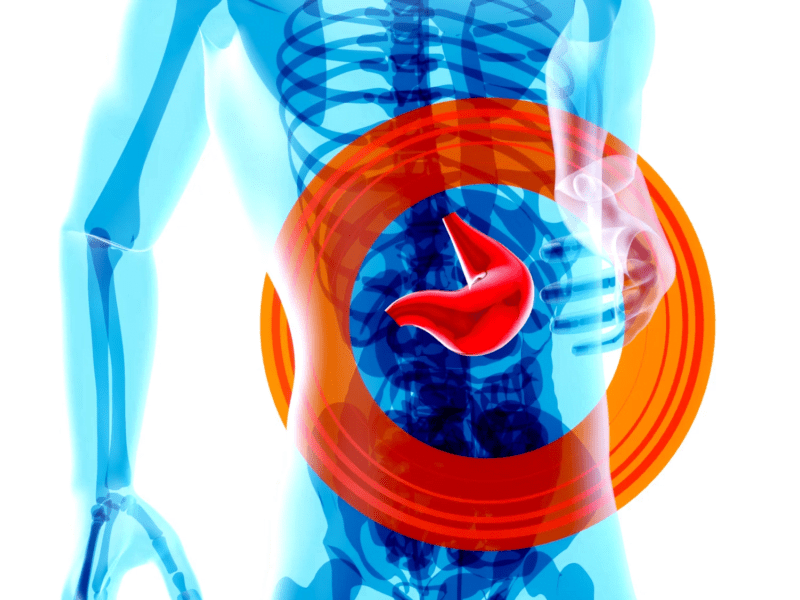Collagen has become increasingly popular for weight loss, with studies showing it may help reduce hunger and support fat loss. Research on appetite suppression shows that taking collagen before meals can help reduce overall calorie intake by up to 20%.
Collagen is rich in the amino acid glycine, which not only supports muscle recovery but also improves sleep quality, an essential factor for weight loss, as poor sleep can lead to a 55% increase in hunger.
Additionally, collagen can help increase muscle mass, which is crucial because muscle burns more calories at rest. Studies indicate that those who consume collagen in their diet can experience better fat loss when combined with exercise.
For optimal results, it is recommended that you take 10-15 grams of collagen daily. By incorporating it into a balanced diet and workout plan, you can see improved metabolism and weight management over time.
How Collagen Supports Weight Loss?
Collagen supports weight loss in several ways, primarily by helping the body maintain muscle mass, improve satiety, and boost metabolism:
- Increased Satiety: Collagen is a type of protein that helps you feel fuller for longer, which can reduce overall calorie intake. Studies have shown that high-protein diets are effective for weight loss because they control hunger. Collagen, in particular, may reduce appetite, making it easier to stick to a calorie deficit.
- Muscle Preservation: Collagen contains key amino acids like glycine and proline, which support muscle repair and recovery. Maintaining muscle mass is crucial during weight loss because it helps keep metabolism active. This, in turn, supports fat burning while reducing the likelihood of losing muscle as you shed weight.
Joint Support and Mobility: Collagen improves joint health by strengthening cartilage, reducing pain, and enhancing mobility. With healthier joints, staying active and engaging in exercise becomes easier, which is essential for effective weight loss.
Morning vs. Evening: When Should You Take Collagen?
Whether morning or evening is the best time to take collagen for weight loss depends on your goals and routine.
Taking Collagen in the Morning: Many experts recommend consuming collagen on an empty stomach. This practice helps maximize absorption and can control appetite throughout the day. If weight loss is your primary goal, taking collagen with your morning coffee or before breakfast may help reduce hunger, making it easier to eat smaller portions throughout the day. Collagen can also support skin health and overall energy levels, making it an ideal addition to your morning routine.
Taking Collagen in the Evening: On the other hand, taking collagen at night can benefit muscle recovery and improve sleep quality. Collagen is rich in glycine, an amino acid that promotes better sleep and is essential for healthy probiotic weight management. Adequate rest supports hormone balance and metabolism, which is crucial for effective fat loss.
Collagen's Role in Muscle Recovery and Fat Burning
Collagen plays a significant role in muscle recovery and fat burning, primarily due to its rich amino acid profile, which supports tissue repair and metabolic function.
Muscle Recovery: Collagen is rich in amino acids like glycine and proline, which are essential for the repair of connective tissues, muscles, and cartilage. After exercise, collagen helps to repair and strengthen these tissues, reducing recovery time and improving overall muscle health. By supporting muscle repair, collagen also helps to maintain muscle mass, which is crucial during weight loss. This is important because muscle mass directly influences metabolism; more muscle means a higher metabolic rate, which helps burn more calories.
Fat Burning: Collagen also promotes fat burning through its role in maintaining muscle mass. As collagen supports muscle growth and repair, it indirectly helps increase the body’s ability to burn calories, even at rest. Additionally, the protein in collagen can boost thermogenesis, the process by which the body burns calories to produce heat, further aiding in fat loss.
Does Timing Matter for Collagen’s Effect on Weight Loss?
Timing can influence collagen’s benefits, but consistency is more important than the exact time of day for weight loss. Taking collagen in the morning, especially on an empty stomach, may help control appetite throughout the day, making it easier to reduce overall calorie intake. This is because collagen is a protein, and high-protein diets are known to increase satiety.
On the other hand, consuming collagen in the evening can support muscle recovery and improve sleep due to its glycine content, which promotes better sleep quality. Since sleep is vital in regulating hunger hormones, better rest can positively impact weight management.
Whether you take collagen in the morning or evening, regular intake is the key to maximizing its benefits for weight loss. Both timing strategies offer unique advantages, but consistency makes the most significant difference in achieving results.
How Much Collagen Should You Take Daily for Weight Loss?
The recommended daily dosage of collagen for weight loss typically falls between 10 to 20 grams. This amount provides enough essential amino acids to help support muscle repair, boost metabolism, and promote satiety. Collagen powders or supplements often come with dosage instructions within this range.
10 grams per day is considered effective for general benefits, including appetite control and muscle support. In comparison, higher doses like 15 to 20 grams may offer more pronounced effects, especially for individuals engaging in regular exercise or those seeking muscle recovery support.
It’s important to note that while collagen can aid in weight loss, it works best when combined with a balanced diet and regular physical activity. Additionally, consistency is key, so taking collagen daily is more impactful than taking a specific amount in one sitting.
Before starting any supplement regimen, it’s also a good idea to consult a healthcare professional for personalized advice.
Combining Collagen with a Balanced Diet and Exercise
Combining collagen with a balanced diet and regular exercise significantly enhances weight loss benefits. Here’s why:
- Protein Boost for Muscle Maintenance: Collagen supplements, rich in essential amino acids like glycine and proline, help maintain muscle mass, especially when paired with regular strength training. Maintaining muscle is key for boosting metabolism, as muscle tissue burns more calories at rest.
- Improved Satiety: Collagen increases feelings of fullness, reducing overall calorie intake. When integrated into a balanced diet, especially a high-protein diet, collagen helps manage hunger and curb cravings. This leads to fewer chances of overeating, which supports weight loss.
Enhanced Workout Recovery: Collagen supports quicker muscle recovery by repairing connective tissue and reducing joint pain, making it easier to stay active. Combined with a proper exercise routine, this leads to more consistent workouts, improving fat-burning and overall fitness.
Collagen Types: Which is Best for Weight Loss?
Regarding collagen types, Type I and Type III are generally considered the best for weight loss due to their high content of amino acids that support muscle repair, satiety, and fat metabolism.
- Type I Collagen: This is the most abundant type in the body and is primarily found in skin, tendons, and bones. Type I is particularly helpful for skin elasticity, but its high protein content also aids in appetite control, making it useful for those looking to lose weight. This type is commonly found in marine collagen.
- Type III Collagen: Often paired with Type I, Type III is found in muscles, organs, and blood vessels. It supports muscle growth and repair, making it ideal for those combining collagen with regular exercise. Maintaining muscle mass is crucial for boosting metabolism and supporting fat burning.
Both types are typically included in multi-collagen supplements, making them popular for people who want to lose weight. Hydrolyzed collagen (or collagen peptides) is the most absorbable form, making it easier for the body to use the amino acids effectively.
Choosing the Right Collagen Supplement for Your Goals
When choosing the right collagen supplement to support your weight loss and health goals, several factors should guide your decision:
- Collagen Type:
- Type I is best for skin, hair, and nails but supports appetite control and fat metabolism.
- Type III helps with muscle growth and repair, making it ideal for those combining collagen with exercise.
- Look for a multi-collagen supplement that includes Type I and Type III for comprehensive benefits.
- Form of Collagen:
- Hydrolyzed collagen (also known as collagen peptides) is the most easily absorbed form, allowing for quicker muscle repair and satietyresults.
- Collagen powders, capsules, and even liquid forms are available. Choose a form that fits your lifestyle, whether you prefer adding collagen powder to smoothies or taking capsules.
- Source of Collagen:
- If you’re allergic to certain foods, check whether the collagen is sourced from bovine, marine, or poultry. Marine collagen is high in Type I but may cause issues if you have seafood allergies.
- Ensure the product is free from unnecessary additives like sugars or fillers that could counteract weight loss efforts.
- Third-Party Testing:
Look for products that have been tested by third-party organizations like NSF International or ConsumerLab to ensure safety and quality, especially to avoid contamination with heavy metals.
Are There Any Side Effects of Taking Collagen for Weight Loss?
Taking collagen for weight loss is generally safe for most people, but like any supplement, it can have minor side effects. The most common side effects include:
- Digestive Issues: Some people may experience mild digestive discomfort, such as bloating, gas, or a heavy feeling in the stomach, especially when starting collagen supplementation or when taking it on an empty stomach.
- Allergic Reactions: Collagen is derived from animal sources like fish, eggs, or bovine, so if you have allergies to these ingredients, you could experience reactions like skin rashes or difficulty breathing. Always check the source of the collagen you are using.
- Calcium Overload: Collagen supplements made from marine sources may contain high calcium levels, leading to hypercalcemia, which can cause fatigue, nausea, or kidney issues.
Heavy Metals: Some collagen products, particularly those from unregulated or low-quality sources, may contain traces of heavy metals. Always choose products from reputable brands with third-party testing.
Final Thoughts: Maximizing Weight Loss with Collagen
Collagen supplements offer valuable support for weight loss by reducing appetite, aiding muscle recovery, and boosting metabolism. When incorporated into a balanced diet and regular exercise routine, collagen can help increase muscle mass, enhance fat burning, and promote overall satiety. Timing collagen intake—whether in the morning to curb hunger or in the evening to support muscle repair and better sleep—can optimize these benefits.
A 10-15 grams daily is often recommended for effective results. However, choosing high-quality collagen from reputable sources is essential, and consult a healthcare professional if you have specific dietary needs. Collagen alone won’t lead to drastic weight loss, but combined with a healthy lifestyle, it can be a powerful tool for achieving your goals.





